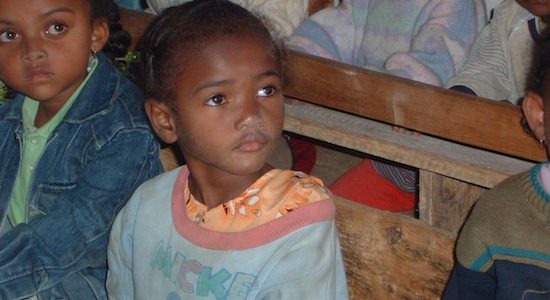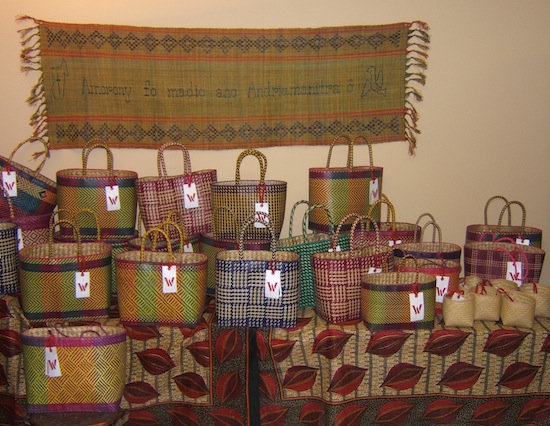The pastor met us at the gate with a wide smile and ushered us into his tiny house. The table in the middle of the room was set with biscuits and bottles of orange Fanta – he had been waiting for us. As we settled into chairs and easy conversation, he began to tell his story.
Ten years ago his house had burned to the ground with his wife and baby daughter inside. His loss was all the more devastating because the fire had been intentionally set when he was away from the village. The man knew he had many enemies, people who did not want to see a church take root in this remote place – but he refused to be driven away. Over the years the pastor rebuilt his home and his life, continued to build his church and started a school in the village.
The school was small and had few resources – and most of all the children were hungry. The parents wanted to do something for their families but the village was very impoverished. Our partner from Antananarivo, Ibrahim Ravoahangy, told us that these villagers had a special skill in making beautiful woven baskets. We suggested that they make as many as possible, promising to return in six months and take their work back to the US to sell.
Truthfully, we didn’t know what to expect – would the villagers make baskets? And if they did, would they be of good enough quality to sell overseas?
Six months later, we stuffed sixty-five stunning and well-constructed baskets of various sizes into large bags and brought them back to the US. The baskets, which cost less than a dollar to make, sold for $40-$60 apiece. 100% of the proceeds went back to Ampitambe where Ibrahim helped the villagers decide how to use their profits. Each artisan was paid a fee for their work and they all agreed to use the remaining funds to build another school block, hire teachers and buy textbooks.
This story could have ended differently. The pastor could have given up and left the village. Ibrahim could have stayed in the comfort of his home in Antananarivo. The villagers could have decided that day-to-day life was hard enough without having to weave dozens of colorful baskets on top of everything else. American shoppers could have decided they didn’t need another basket. But in the end, this was a project that benefitted everyone – especially the children and together, we all made a difference!


